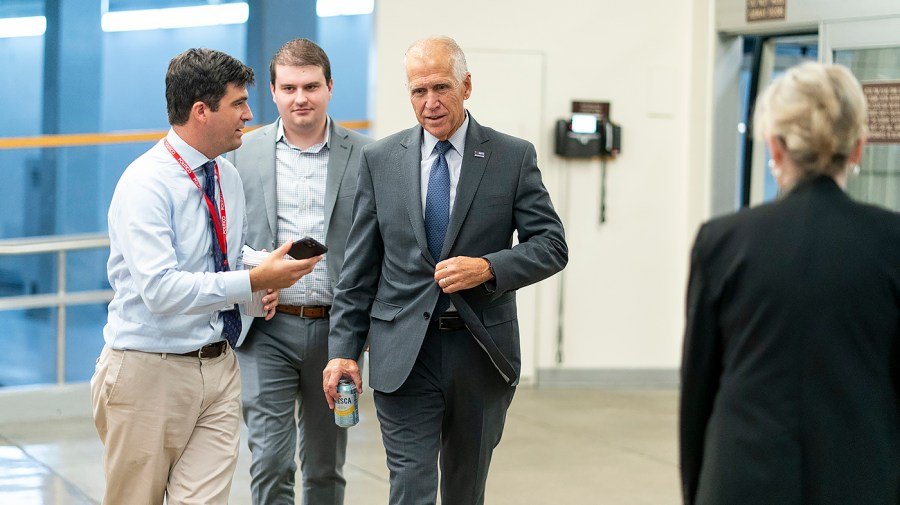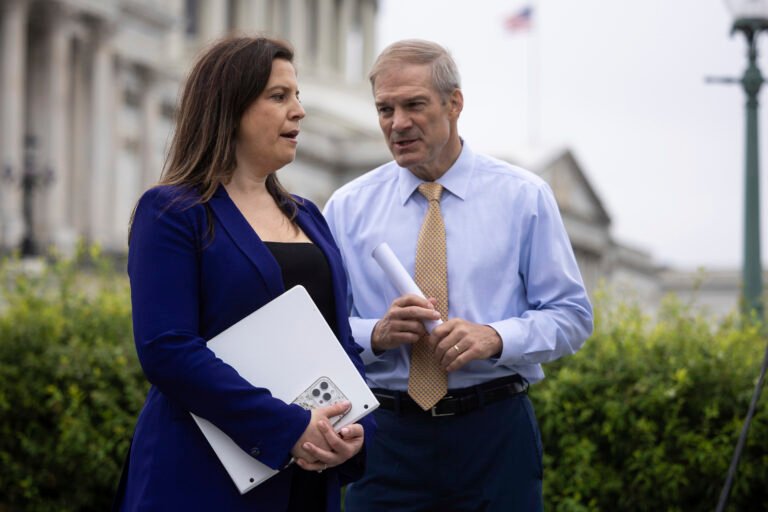
Sen. Thom Tillis (R-N.C.) said Thursday he would not support a simple-majority vote to change the Senate’s rules on order to speed up the confirmation of more than 160 pending Trump administration nominees, who have been held up by Democrats demanding time-consuming votes on even low-level, noncontroversial picks.
The backlog of nominees has prompted Senate Republicans to discuss a variety of rules reforms, such as getting rid of the two hours of debate time that must elapse between a key procedural step called a cloture vote and a final vote.
Republicans are also discussing packaging lower-level nominees in groups and voting on them en bloc to speed up consideration on the floor.
A third option would be to eliminate the cloture vote, which limits debate time on the floor, before the final vote on lower-level nominees.
All of these rules changes, however, would need at least 51 votes on the Senate floor if Republicans decide to make them without any Democratic input.
Under regular order, 67 votes are required to change the Senate’s rules, but there’s a shortcut to establishing new precedents through simple-majority votes known as the nuclear option — called that because changing the Senate’s rules with a simple majority-vote is viewed as a major escalation of partisan tactics.
Tillis said Thursday he would not support changing Senate precedent with a simple-majority vote to limit the minority party’s ability to slow down nominees.
“I just generally don’t go nuclear,” he said.
He argued that “if we do this, then that means the new bar for rules [changes] is a simple majority” instead of mustering 67 votes to change the rules under regular order.
Sen. Susan Collins (R-Maine) also sounded leery about changing the rules for processing lower-level nominees through a partisan vote.
“We clearly have a huge problem with bipartisan nominees requiring roll call votes, but I want to see what the exact proposals are,” she said.
Senate Majority Leader John Thune (R-S.D.) told reporters Thursday morning that the conference is exploring various rule changes to get Trump’s nominees confirmed more swiftly.
“We’re having the conversations. Obviously, you want to do it the right way, and so it could very well be something we do when we come back,” he said, referring to when senators return to Washington in September after the August recess.
Thune said it would be “preferrable” to change the rules with 67 votes from members of both parties, but he observed that’s unlikely to happen in today’s partisan environment.
“There is some interest on the Democrat side that has been expressed,” he said of a potential rules change. “I suspect with the current Democrat Party, though, it would be very hard to get 67.”


